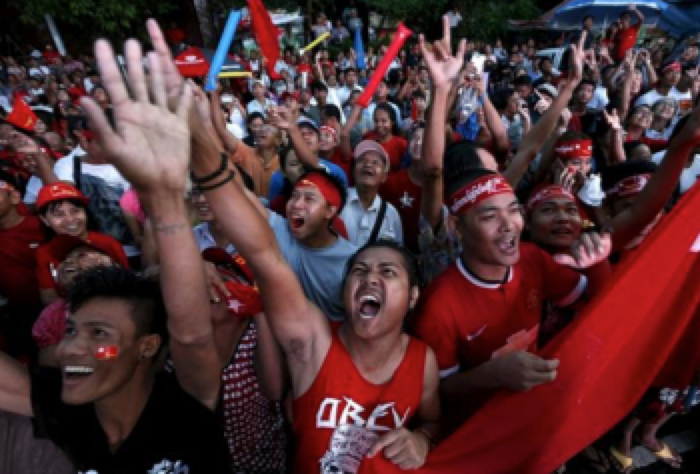Burmese Elections 2015 – “Free but not Fair”
November 27, 2015
On November 8, Burma (now officially and controversially known as Myanmar*) held its historic elections, pitting 91 political parties against each other, but the Burmese people – and the world – waited with bated breath for the outcome between two particular parties. The National League for Democracy (NLD) is headed by 1991 Nobel Peace Prize Laureate Aung San Suu Kyi, and based on previous elections, was projected to be the greatest contender against ruling military proxy, the Union Solidarity and Development Party (USDP). Three days after the election, approximately half of the votes were already counted, and the NLD won 25 parliament seats in both upper and lower houses, as opposed to the 21 seats of the USDP. Despite the official polling results of the government electoral commission trailing behind the own count of the NLD, the official count shows the NLD is in the clear majority as well. A week after the election, 99% of the results were announced and the NLD maintained its clear lead and parliamentary majority. Ultimately, the NLD secured 348 seats compared to the USDP’s mere 40 seats.
In Burma, the president is elected indirectly through the parliament, in an intricate process as decreed by the 2008 constitution, which also declares that 25% of parliamentary seats are reserved for military officials, who are largely on the USDP’s side. While the National League for Democracy now has more than enough officials in place to elect Suu Kyi as their presidential candidate, another contingency of the constitution, Article 59F, bars those with “legitimate children” who “[owe] allegiance to a foreign power,” meaning a citizenship, from nomination. Suu Kyi, whose sons are both British nationals, reported that she had a “civilian” candidate in mind but also ensured that she would be playing a large role in the presidency, which will be announced in 2016, and would be in fact serving “above the President.”
Previously, in May 1990, free elections were held and the National League for Democracy came out victorious, with 392 of 492 parliamentary seats, about 80% of the house. However, the military junta refused to step down and essentially ignored the results, not only maintaining its rule until its dissolution in 2011, but also putting Suu Kyi under 15 years of house arrest, during which she was unable to be with her husband in his passing. In November 2010, elections under the current constitution were held, and the USDP declared victory, but the results are widely debated, with the United Nations and many Western nations skeptical of the fairness and the NLD declaring the elections unjust as they took place during Suu Kyi’s house arrest, which was ended just days after the election.
The election did not only prove monumental for the Burmese population, but the world is keeping its eyes on the nation as well. Increasing steps towards democracy are advocated for by the Obama administration, and the bordering China and India are interested in Burmese affairs. China especially, as the rich natural deposits in Burma would prove extremely beneficial for China’s economy if some sort of agreement is struck, but China must be on its toes with the obvious mounting Democratic tide which could nudge Burma towards the democratic United States.
While the 2015 election marked a large step toward democracy for Burma, the military power will remain influential, which was also reflected in the election process and outcome, which Suu Kyi described as “free but not fair.” However, among rampant poverty, civil ethnic clashes, and government corruption, the free election already showed the results of a gradually changing atmosphere in Burma.
*Myanmar is the name instilled by the military junta that took over in a coup d’etat in 1962. Some nations, such as Australia and Canada, continue to call the nation Burma, as calling it by “Myanmar” would be acknowledging the legitimacy of the military dictatorship.

